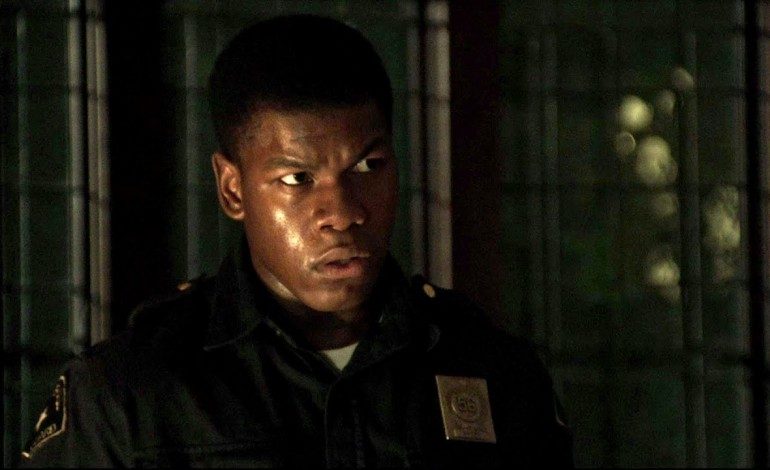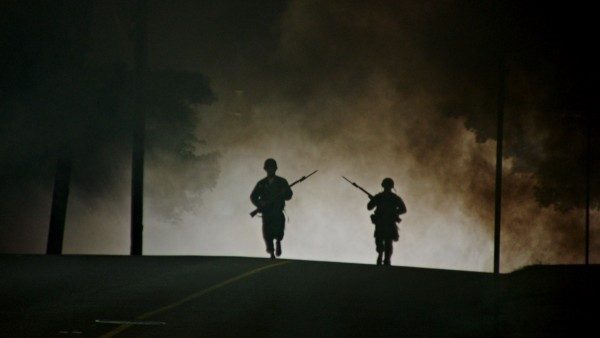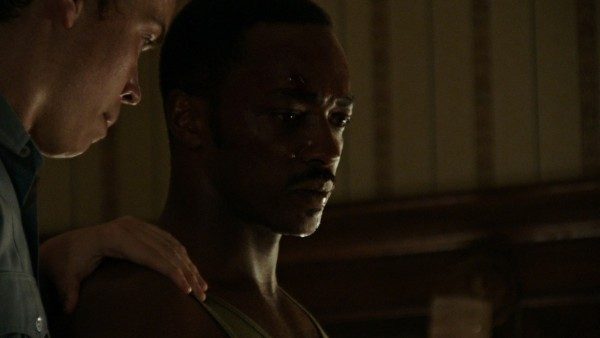

Detroit is the latest feature from acclaimed director Kathryn Bigelow. The movie primarily revolves around an incident that occurred during the 1967 12th Street Riots in Detroit, which is all I’ll say without going too much into plot details because I went in knowing next-to-nothing about the actual events. Now I’m sorry to admit that Detroit is my first full exposure to Kathryn Bigelow excluding the assassination scene from Zero Dark Thirty that my father showed me when I had not yet considered myself a “movie fan,” yet I was still interested in Detroit based on the trailer alone. Upon finally seeing the movie, I now realize that not seeing any of Bigelow’s previous directorial efforts beforehand was a mistake because this movie is amazing.
For those who don’t know, this film is the first as a distributor for the long running production studio Annapurna Pictures, yet it looks too great be a “debut.” Even though Detroit is technically my first Kathryn Bigelow movie, it probably wouldn’t have worked as well without her excellent direction because with the help of fluent editing that keeps this non-linear narrative from losing focus, Bigelow knows how to evoke the right emotions without manipulating her audience in any way. In terms of cinematography, footage is a blend of handheld camera as well as actual footage taken during the events giving it a documentary style that while not new is still fitting for this type of story. Similarly, the film’s terrific production value gives it some much-needed authenticity; from the costumes to the music, Bigelow makes us as an audience feel as if we’re there witnessing the chaos unfold.
Detroit features a talented and diverse ensemble cast that includes John Boyega, Jason Mitchell, and Anthony Mackie among others; fortunately, every actor gives their all here. Before moving any further, I just want to briefly touch on another period piece that came out not too long ago: Dunkirk. While that film received almost unanimous praise from both critics and moviegoers alike, many people who enjoyed Dunkirk still criticized it for not having any well-developed characters; but where that film is more about the event, Detroit is more about characters, and it works in that respect. The film is for sure an ensemble piece in that not one actor receives any more or any less screen time because of their respective status, which not only complements the suitably non-linear narrative but also gives everyone time to shine. Nevertheless, my favorite performance from Detroit — if I had to choose one — is Will Poulter as a terrifying racist police officer who, similar to most memorable villains, still tries to justify his horrible actions; furthermore, I didn’t even know that the real-life actor is British because he sports a convincing American accent, which Poulter went into detail about during a Q&A that took place after the film officially ended. Although this role isn’t Poulter’s first major one, more people should still keep an eye on him as an actor.
Journalist-screenwriter Mark Boal wrote the script for Detroit and even though this film is actually his third collaboration with Bigelow, I’m still unsure how he can top it. Every minute of the rather lengthy 143-minute runtime feels necessary for this story and I was captivated from the opening sequence onward. Going into Detroit, I was honestly skeptical about how the filmmakers would handle this rather sensitive subject and after seeing the film myself, it’s another area where they succeed with flying colors. While the characters did indeed represent certain perspectives in this sort of situation, Detroit never once feels preachy or ham-fisted in terms of the delivery regarding its themes and message about racial discrimination and police brutality. The film obviously shocked me but not in ways that I expected, which is part of the reason why it feels so real and not Hollywoodized.
Verdict: 5 out of 5
Detroit is a powerful film that deserves to be seen. It’s an intense thrill ride that isn’t easy to watch but is still essential viewing, especially after everything that’s occurred in the last fifty years. Anyone who is concerned that Detroit is another “white people are evil” movie or even an anti-police movie should know that the titular city’s police chief has considered making the film required viewing for new recruits, which further goes to show how important it is.


